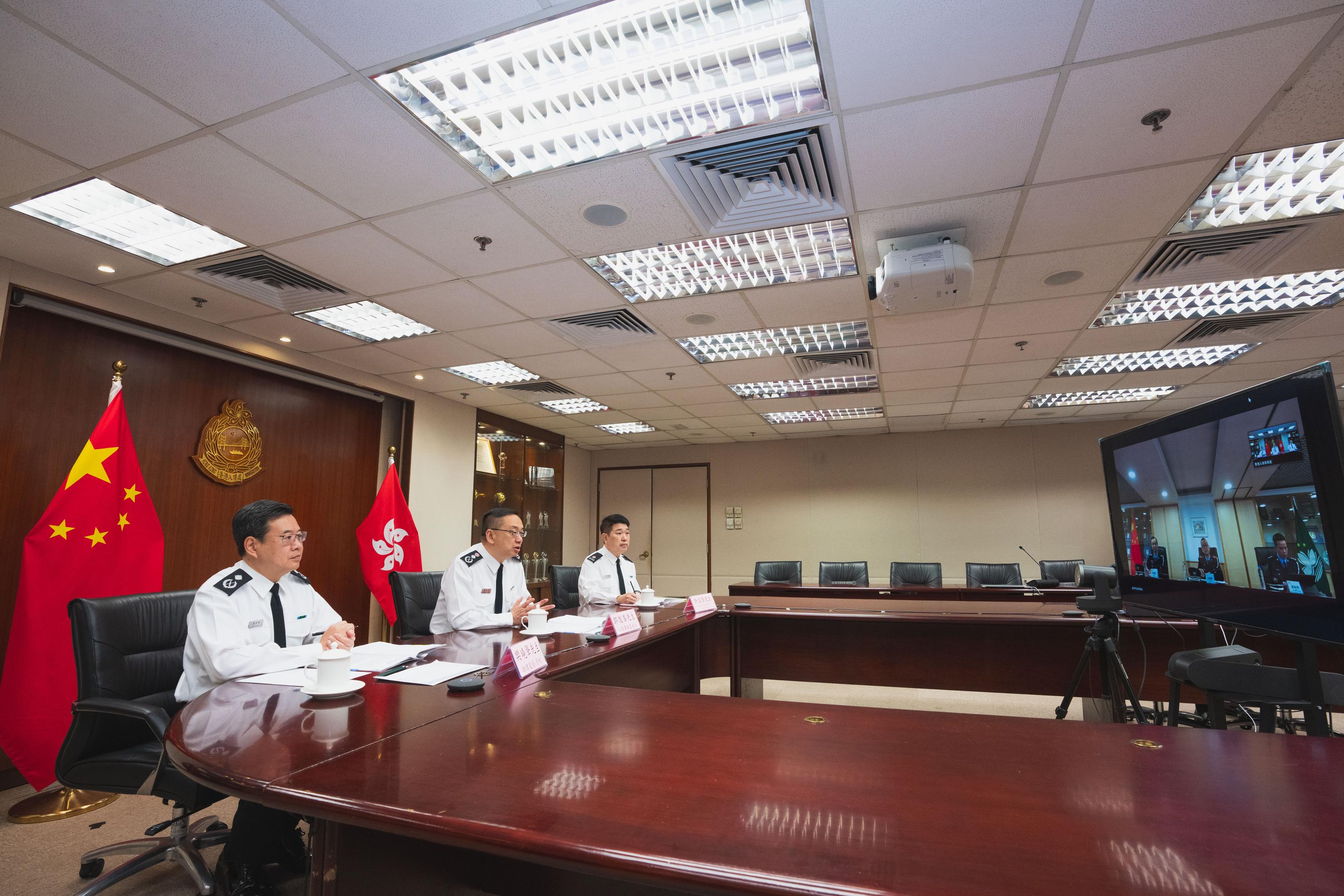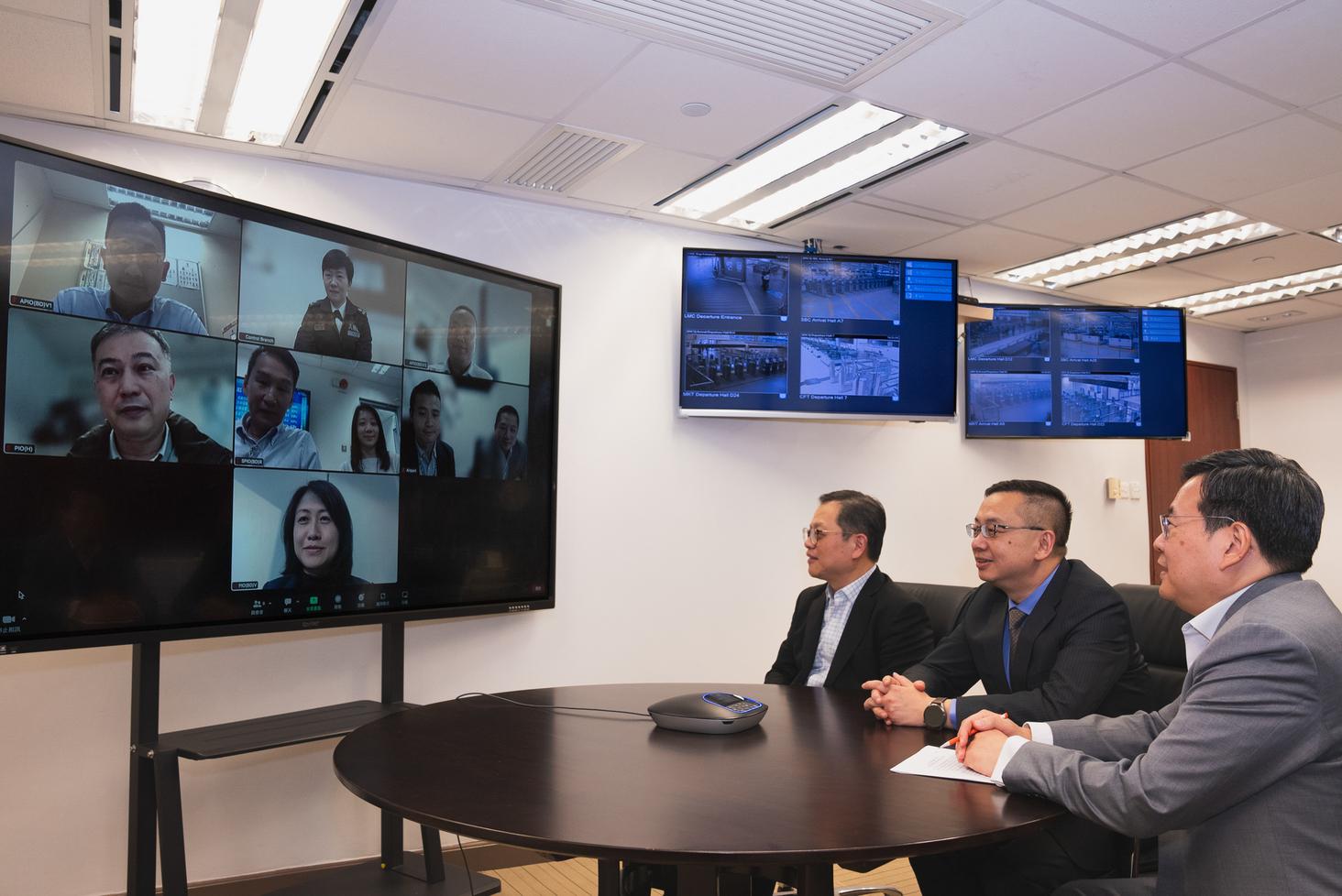Following is a question by the Hon Nixie Lam and a written reply by the Secretary for Health, Professor Lo Chung-mau, in the Legislative Council today (December 6):
Question:
It is learnt that breast cancer is one of the most common cancers among females in Hong Kong. A study has pointed out that 10 per cent to 15 per cent of breast cancer cases are attributed to hereditary factors, and there is a downward trend in the age profiles of such patients. In this connection, will the Government inform this Council:
(1) of (i) the cumulative number of breast cancer patients, (ii) the number of patients diagnosed with breast cancer and (iii) the number of breast cancer deaths in each of the past five years;
(2) given that the Department of Health (DH) has implemented the Breast Cancer Screening Pilot Programme (the Pilot Programme) since 2021 to provide breast cancer screening services to eligible women, and DH is now preparing for Phase 2 of the Pilot Programme, of the enhancement measures the Government plans to introduce for the Pilot Programme; whether it will make reference to the practices in other regions and gradually expand the target recipients of the Pilot Programme with a view to ultimately achieving breast cancer screening for all women in Hong Kong; if so, of the details; if not, the reasons for that;
(3) as it is learnt that the Hospital Authority (HA) currently provides free genetic testing for ovarian cancer patients to identify those who are suitable for drug treatment, whether the Government knows if HA will consider extending the coverage of such testing to include breast cancer patients; if HA will, of the details; if not, the reasons for that; and
(4) of the details of the current publicity and education efforts to help the public prevent breast cancer?
Reply:
President,
The Government attaches great importance to cancer prevention and control. This is an important strategy to prevent and control non-communicable diseases. In 2001, the Government established the Cancer Coordinating Committee (CCC) to formulate strategies on cancer prevention and control and to steer the direction of work covering cancer prevention and screening, surveillance, research and treatment. The CCC is now chaired by the Secretary for Health and comprising members who are cancer experts, academics, doctors in public and private sectors as well as public health professionals. The Cancer Expert Working Group on Cancer Prevention and Screening (CEWG) established under the CCC regularly reviews local and international evidence and makes recommendations on cancer prevention and screening applicable to the local setting.
The reply, in consultation with the Department of Health (DH) and the Hospital Authority (HA), to the questions raised by the Hon Nixie Lam is as follows:
(1) The Hong Kong Cancer Registry of the HA and the DH maintain the statistics for the numbers of new cases and registered deaths of female breast cancer but not for the number of accumulated numbers of breast cancer patients. The relevant numbers from 2018 to 2022 are tabulated below:
| |
2018 |
2019 |
2020 |
2021 |
2022 |
| New cases (Note) |
4 618 |
4 761 |
4 956 |
5 565 |
– |
| Registered deaths |
753 |
852 |
751 |
791 |
792 |
Note: Figure in 2022 is not yet available
(2) Based on the recommendations of the CEWG, the Government adopts a risk-based approach for breast cancer screening. Following this, the DH launched the Phase 1 of Breast Cancer Screening Pilot Programme in the latter half of 2021 to provide screening services for eligible women at three Woman Health Centres and 18 Elderly Health Centres, with an aim of detecting early breast cancer in women in the group defined by risk-based approach before any symptoms appear, so that treatment can be carried out early. The Primary Healthcare Office under the Health Bureau has also published the "Hong Kong Reference Framework for Life Course Preventive Care in Primary Healthcare" to provide guidance to healthcare professionals and enhance public awareness on self-health management including disease prevention and establishing healthy lifestyle where a risk-based approach for breast cancer screening is also included. The Government is now reviewing the experience and effectiveness of the phase 1 programme, views of the CCC and the latest recommendations of the CEWG to decide on the implementation details for the next phase of breast cancer screening programme. Relevant details will be announced in due course.
When considering recommendations for any disease screening, the Government will refer to the evidence-based risk assessment and views of relevant experts from the perspective of public health, and take into account the perspective of good utilisation of medical resources to determine the priority. Excessive screening under public health programme not only wastes resources for the overall public health, but also runs out of resources that can be invested on other projects in greater need, and may pose unnecessary health risks to individuals, often causing more harm than good.
(3) At present, clinicians may use genetic testing to provide more accurate and most optimal treatment options for a more personalised and precise disease treatment. Since the second quarter in 2021, the HA has been providing genetic testing services for ovarian cancer patients in need under professional judgement of doctors and clinical indications of the patients. The HA would keep abreast of the latest development of genetic testing technology and opinion of expert groups to explore the applicability and needs for genetic testing services in the treatment of other cancers in due course.
(4) The DH has been promoting healthy lifestyle (including avoiding alcohol consumption, having regular physical activity, maintaining a healthy body weight and waist circumference) as the primary strategy in cancer prevention. Meanwhile, the DH practises risk-based breast cancer screening to detect early breast cancer in women for timely treatment. The DH has been raising public awareness in breast cancer prevention and breast health through various channels, including publishing articles, producing Announcements in the Public Interest for broadcasting through television, radio, online platforms, social media, etc.
In addition, the DH has also produced health education materials such as posters and pamphlet on breast health awareness and breast cancer prevention, and provided health messages on breast cancer prevention and screening for ethnic minorities in at least six ethnic minority languages (including Hindi, Nepali, Urdu, Thai, Bahasa Indonesia and Tagalog).
The Government will continue to strengthen the promotion of breast cancer prevention through various media channels, and collaboration with community partners and service providers.



